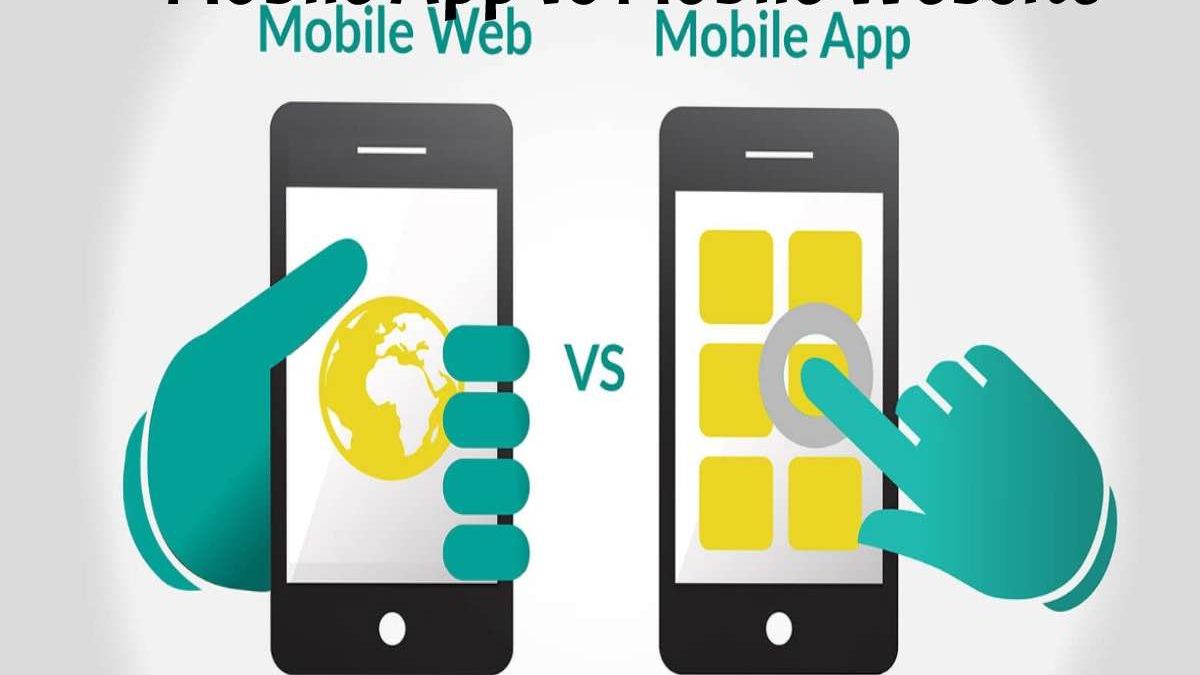What remains the Difference between a mobile website and an application (application)?
Before assessing the benefits of a mobile website versus an app, one must understand the critical differences between the two. Mobile apps and websites remain accessed from portable devices such as smartphones (for example, iPhone, Android. And Blackberry) and tablets.
A mobile website remains similar to any other website in that it consists of browser-based HTML pages linked together and accessed over the Internet (for mobile devices, typically Wi Fi or 3G or 4G networks). The prominent feature distinguishing a mobile website from a standard one is that it remains designed for a smaller handheld screen and touch screen interface. Responsive web design increasingly remains the new standard for mobile-friendly websites and can also scale to devices of any size, from desktops to handheld tablets and smartphones.
Table of Contents
Like any Website,
mobile website/responsive sites can show text content, data, images, and videos. They can also contact mobile-specific features such as click-to-call (to dial a telephone number) or location-based mapping.
Apps remain actual applications downloaded and installed on your mobile device rather than displayed in a browser. Users visit device-specific portals such as the Apple App Store, Android Market, or Blackberry App World to find and download apps for a particular operating system. The app can pull content and data from the Internet, similar to a website, or download the content to remain accessed without an Internet connection.
Which is Better, an app or a Mobile (Responsive) website?
I am generally speaking. A mobile website should be considered the first step in developing a mobile web presence. At the same time, an app helps develop an app for a particular purpose that cannot remain effectively achieved through a web browser.
Advantages of a Mobile website Compared to Native Applications
If your goals relate primarily to marketing or public communications, a responsive/mobile website will almost always make sense as a practical first step in your mobile outreach strategy. This is because a mobile website has several advantages over apps. Including greater accessibility. Compatibility. And cost-effectiveness.
Check Immediacy: mobile websites are instantly available
Users can now access a mobile website through a browser on various devices (iPhone, Android, BlackBerry. Etc.). On the other hand. Apps require the user to first download and install the app from an app market before the content or app can remain viewed. This remains a significant barrier between initial engagement and action/conversion.
Check Compatibility: mobile websites Remain Compatible Across Devices
A solo mobile website can reach users across many different mobile devices. While native apps require a separate version to remain developed for each device type. Additionally, mobile website URLs easily integrate with other mobile technologies. Such as SMS. QR codes. And Near Field Communication (NFC).
Check Upgradability: mobile websites can Remain Upgraded Rapidly
A mobile website remains much more dynamic than an app in terms of flexibility in updating content. If you want to change a mobile website’s design or content. Publish the edit once, and the changes will be visible immediately. On the other hand, updating an app requires updates to be pushed to users, which need to remain downloaded to update the app on each device.
Learn the Difference Between an App and a Mobile Website, and Find what’s Right for your Business.
An application or software application cannot remain directly accessed on the Internet. And instead. It must remain downloaded to a smartphone or tablet.
Mobile websites are responsive sites that automatically scale to fit the screen size of your viewer’s device.

